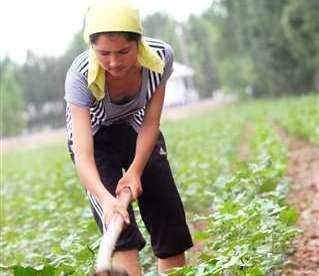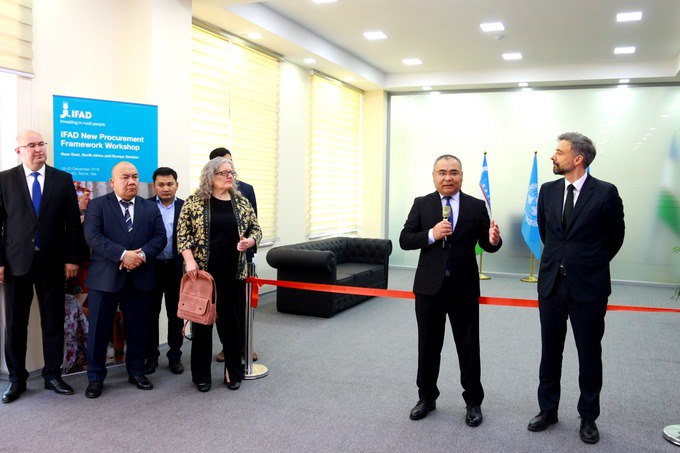BISHKEK (TCA) — Participants of the joint UN and the Kyrgyzstan government “Rural Women’s Economic Empowerment” (RWEE) project increased their agricultural production by 30-70 percent over a 4-year period, thus confirming the benefits of increasing economic opportunities for rural women. Additionally, RWEE participants achieved a 30 percent increase in income from the launch of business activities such as greenhouses, bakeries, photo studios, computer courses, and carpet workshops, and contributed to reduced rural unemployment, the project partners said.
Achievements of the project were highlighted on June 6 at a RWEE donor meeting, arranged by project partners, including the Kyrgyz government and the four participating UN agencies: the UN World Food Programme (WFP), UN Women, the Food and Agriculture Organization (FAO) and the International Fund for Agricultural Development (IFAD).
Since 2014, the RWEE project has supported 73 rural communities across Kyrgyzstan and has reached over 3,000 rural women. The women attended training on innovative technologies in agriculture, business and marketing skills and leadership training. They also received small grants and agricultural inputs to set up businesses and boost their farming activities.
Participants went on to establish two women’s cooperatives and two rural women’s associations, which now provide additional support to 1,500 women on agricultural technologies, business development and provide access to revolving funds for the purchase of seeds and other agriculture inputs.
Rural women participants have also mastered leadership skills, which have supported their active participation in local communities and self-government bodies. Subsequently, 23 women were elected to local councils and were engaged in the initiation of social projects that have benefited over 12,500 people. Initiatives of this sort include rural kindergartens and the reconstruction of community water supplies and electricity networks.
In addition, through their increased engagement in community life, women successfully lobbied for the endorsement of gender-sensitive local development plans for the period 2017-2030 in 15 rural districts. These field-level successes have gone on to inform the design of national gender-sensitive policies as part of the Kyrgyz Republic’s sustainable development framework.
“RWEE has proved that if rural women realize their leadership potential and have access to resources, they can become a driving force of economic development and enhanced food security and nutrition in the Kyrgyz Republic,” said Dorjee Kinlay, Co-chair of the RWEE Steering Committee. He went on to stress that “We should build on the success of these joint efforts to ensure that future generations benefit from the provision of equal opportunities for all, for which continued donor support is required.”
The joint RWEE initiative would not have been able to produce these achievements without the generous support of the governments of Norway and Sweden, which have contributed over US$2.5 million in support of this joint initiative to empower rural women in the Kyrgyz Republic.









